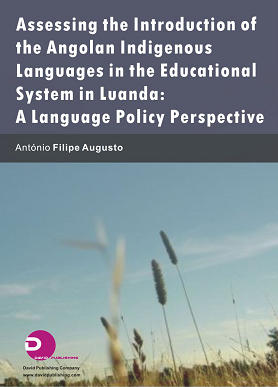0pp 0
- ISBN: (Ebook) 1-934502-08-1 USD $40.00
- ISBN: ( Print) 1-934502-08-1 USD $70.00
António Filipe Augusto has been a teacher for 31 years. His teaching experience ranges from primary to tertiary education. In 1982, he began his teaching career in primary school, teaching general subjects. Twelve years later, he started teaching English as a foreign language to secondary school children and to high school vocational students. Currently, He is a lecturer and the Head of English Department at the Instituto Superior de Ciências da Educação – ISCED/ Luanda, where he has worked for the last 14 years as an English as a Foreign Language Teacher Trainer, dealing with various courses in the field of linguistics. He lectures inter alia Introduction to Linguistics Studies, Sociolinguistics, English Phonetics and Phonology and Psycholinguistics. He has BA in Teaching English as a Foreign Language from Universidade Agostinho Neto (ISCED-Luanda), in Angola, Diploma in English Language Teaching and administration from the University of Warwick, in Britain, and MA in Linguistics (sociolinguistics) from the University of the Witwatersrand, South Africa. His main research interests are in sociolinguistics (Critical Discourse Analysis and Language Ideology) and Phonetics and Phonology. He is the author of a few articles both on sociolinguistics and English phonology related to language teachers, published in the Journal of ISCED/Luanda (KULONGA). He is also the author of the first research of phonology of Kikongo, the language of the former Kingdom of Kongo (a Bantu language spoken in Angola, Gabon, Democratic Republic of Congo and Republic of Kongo).
